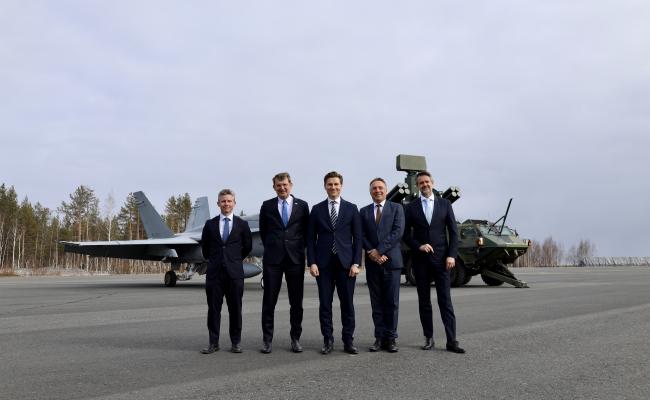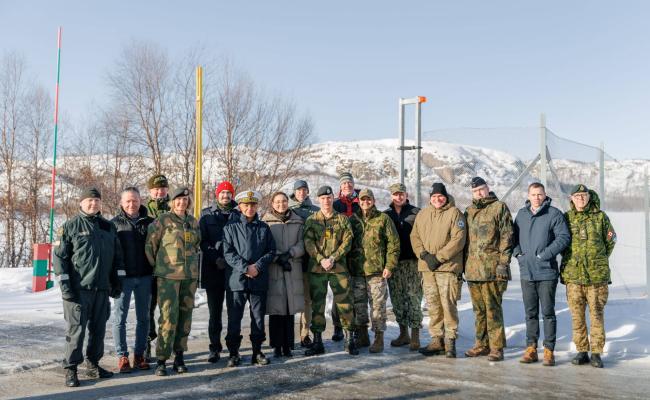Stoltenberg: “Narvik Is History, but Also the Future in Terms of Security and Defense”
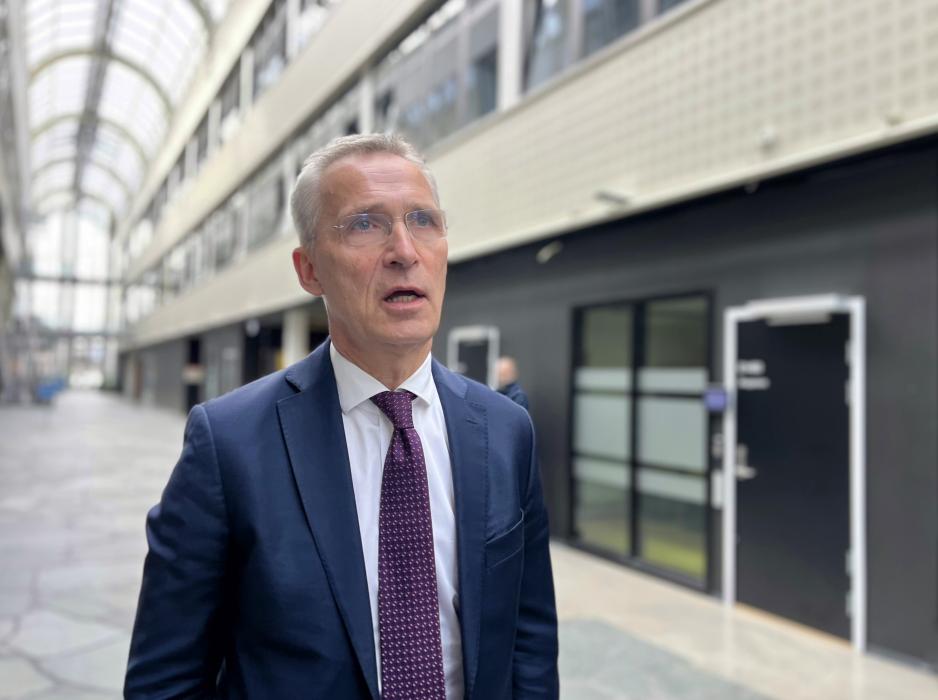
Jens Stoltenberg is back in Norwegian politics after many years as NATO Secretary General. On May 8th, he visited the town of Narvik in Northern Norway, focusing on both war history and new measures to strengthen security in turbulent times. (Photo: Astri Edvardsen)
Narvik, Northern Norway (High North News): "Sweden and Finland's accession to NATO has made Narvik and the High North even more important for our security," says Jens Stoltenberg, former NATO Secretary General and current Norwegian Minister of Finance.
"We see no immediate risk of a military attack on Norway. But we live with permanent and increasing threats such as cyber attacks, terror attacks, and sabotage, as well as pandemics and natural disasters," says Jens Stoltenberg, and continues:
"We live at a time where we cannot take peace for granted, like we used to. This is due to the sum of everything that happens around us."
The Norwegian Minister of Finance (Labor) and former NATO Secretary General spoke to a full house during a conference on total preparedness in the North, recently organized by UiT – the Arctic University of Norway and Narvik municipality.
The audience included experts and leaders from the public, private and voluntary sectors, gathered in Narvik to discuss security challenges in the High North and cross-sectoral cooperation.
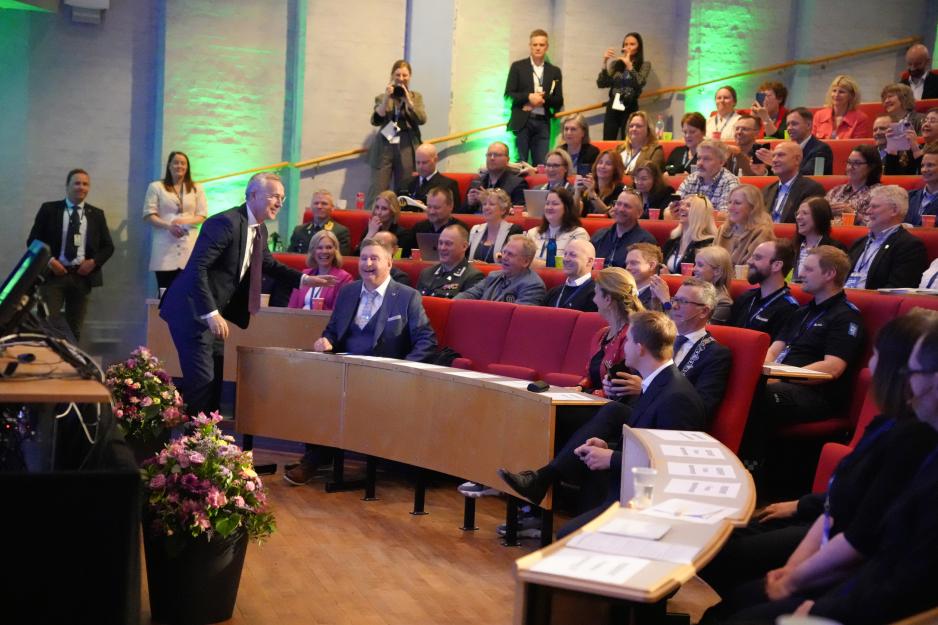
Not just serious: Jens Stoltenberg warmed up the audience with a humorous tone before addressing matters related to security and defense. He also reassured that there is no sign of any immediate danger of war befalling Norway. (Photo: Ida Laingen / Norwegian Ministry of Finance)
Topical war history
The conference and Stoltenberg's visit to Narvik are framed by the Norwegian Liberation and Veterans Day on May 8th. This year also marks the 80th anniversary of a free Norway after war and occupation.
"I cannot imagine a better place than Narvik to mark the Liberation and Veterans Day," states Stoltenberg.
Narvik has an ice-free seaport and has long served as a major transhipment point for iron ore from Northern Sweden. In 1940, the strategically important town was the subject of significant battles in which Norwegian and allied forces fought back against German invasion forces.
"The truth is that it wasn't until I got to NATO that I realized the significance of Narvik and Northern Norway during World War II," says Stoltenberg, who became the Secretary General in 2014.
"I was in London and met generals and war historians who told me about the battles in Narvik. I was in Paris, and they spoke of the courage and suffering here in April and May 1940. And I was invited to Warsaw, where I put down a wreath at the Narvik monument for Polish soldiers who fell here."
Central in both past and future
"It is first really when one leaves the country that one understands the significance of Narvik during the Second World War, but also for our own security," reasons Stoltenberg and continues:
"Something I was a part of in NATO was getting Sweden and Finland into the alliance, which has made Narvik and the High North even more important to our security. So Narvik is history, but Narvik is also the future in terms of security and defense."
He refers to the railway connection from the Port of Narvik to Kiruna and Luleå in Northern Sweden. With this infrastructure, the town has also become a central reception and transit point for allied forces going to Sweden and Finland.
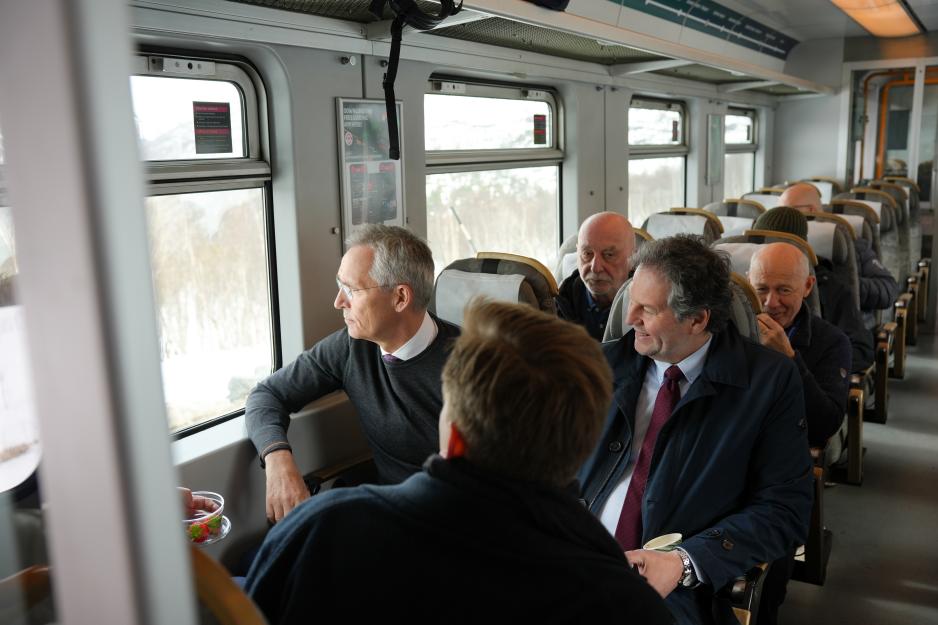
Jens Stoltenberg also took a trip on the Ofoten Line (which connects with the Swedish Iron Ore Line). This is Norway's busiest railway line, where ore transport from the Kiruna mines in Northern Sweden constitutes most of the traffic. To upgrade the line, the Norwegian government has so far decided to build three new crossing tracks, which could pave the way to meeting the local demand for double tracks. (Photo: Ida Laingen / the Norwegian Ministry of Finance)
New realities
Furthermore, the Norwegian minister of finance draws up a complex threat landscape in an increasingly turbulent world:
"There is more rivalry among the great powers. There is a new war in Gaza. There are combats in Kashmir between two Nuclear states, Pakistan and India. There is a full war in Europe, in Ukraine. And there is a trade war in the world, which also impacts our security."
"This is another world than the one we've known since the end of the Cold War, which is something we quite simply must accept."
In the face of this gravity, the Norwegian Prime Minister, Jonas Gahr Støre, now has presented Norway's first national security strategy on, Stoltenberg points out.
The strategy outlines a comprehensive approach to security across society.
"Both the state and municipalities, but also private businesses and individuals, must accept responsibility to manage a more dangerous and uncertain world," Stoltenberg says.
Importance of support to Ukraine
In relation to the new strategy, Stoltenberg highlights three tasks he considers essential going forward:
"Task number one is to support Ukraine. If President Putin wins in Ukraine, it will not only be a tragedy for the Ukrainian people, but it will also be dangerous for us. Because the lesson will be that when you violate international law and invade another country, you get what you want. If great powers can take control of neighboring countries, that will be particularly dangerous for small countries with large neighbors, such as Norway."
"We all want peace in Ukraine. But if one loses a war, there will not be peace, but occupation. Therefore, the Norwegian king and government said no to the German demand for surrender in 1940. Just like President Zelensky and the Ukrainian people said no to surrender when Russia launched the full-scale invasion in February 2022. To have lasting and just peace in Ukraine, we must reinforce the Ukrainians militarily, and that entails more weapons for the country."
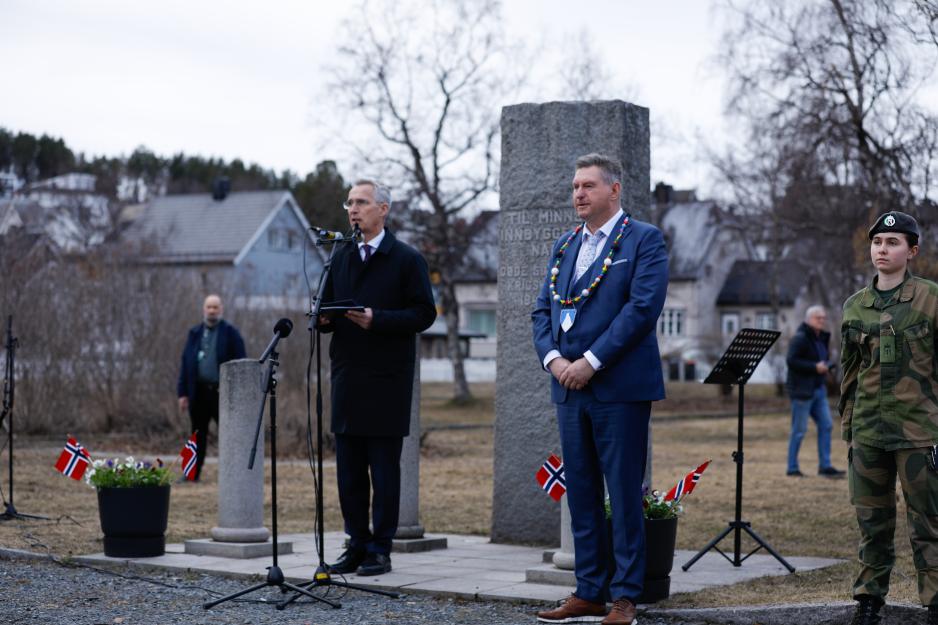
The celebration of Liberation and Veterans Day was also central to Stoltenberg's program in Narvik. Here he is with Narvik's mayor, Rune Edvardsen (Labor). (Photo: Ida Laingen / the Norwegian Ministry of Finance)
Strengthened self-sufficiency and orderly economy
The other central task is to strengthen Norway's defense capabilities, Stoltenberg states.
"Since 2021, the Norwegian defense budget has nearly doubled. This is an enormous increase and allows for increased military strength, not least in the North."
Finally, the minister of finance refers to keeping the Norwegian economy in check.
"If we cannot do that, we cannot invest in defense and security, and preserve the Norwegian social model."
Up in the air
Yet, Stoltenberg said little about strengthening civil preparedness, which is a critical enabler for military capacity.
When asked by High North News whether the current Labor government will implement measures for an extra civil preparedness boost in the North, the minister says to wait and see in the upcoming national budget.
He presents the government's proposal for the revised national budget 2025 on May 15th.




